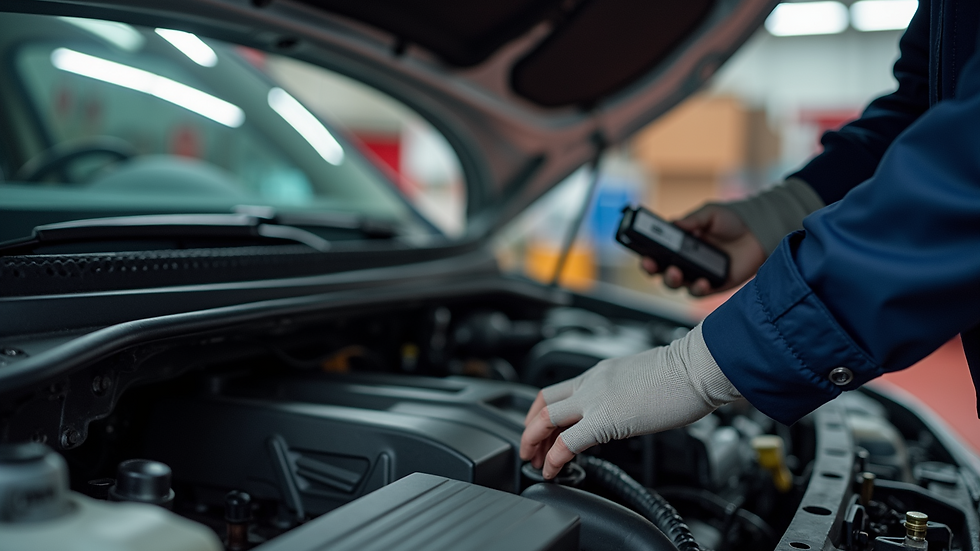The Insider's Guide to Purchasing a Pre-Owned Vehicle in Ghana: Expert Tips and Strategies
- Autolast Ghana

- Mar 31, 2025
- 4 min read
Updated: May 8, 2025
Purchasing a used car is an exciting journey that many individuals in Ghana undertake. With increasing interest in the used car market, buyers can access a wide range of options at a more affordable price. Ensuring you are equipped with the right knowledge and strategies can make all the difference in your purchasing experience. This guide will provide you with practical tips that will help you make informed and satisfying decisions when buying a used vehicle.
Understanding the Used Car Market in Ghana
The used car market in Ghana is flourishing. Economic factors often drive individuals toward pre-owned vehicles, which typically incur lower depreciation rates compared to new cars. For instance, a new car can lose around 20% of its value within the first year, while used cars often retain their value better over time.
In urban areas like Accra and Kumasi, the selection of used cars is more extensive, ranging from economy models to luxury vehicles. In contrast, rural areas may feature fewer options but often have models tailored to the specific driving conditions, such as cars with high ground clearance.
Researching local prices and common models can result in significant savings and prevent buyers from overspending.
Set a Budget
Before beginning your search, it is crucial to set a strict budget. Consider not just the car's purchase price but also ongoing costs like insurance, maintenance, and fuel. For example, if you allocate GHS 30,000 for the purchase of a car, be sure to set aside an additional GHS 5,000 to handle insurance and regular maintenance during the first year.
Additional expenses such as registration fees and potential repairs can quickly add up. By establishing a clear budget, you can focus on vehicles that fit your financial limitations, avoiding disappointment down the line.
Research and Identify Your Ideal Car
With your budget firmly in place, it is time to determine which type of vehicle suits your needs. Do you need a compact, fuel-efficient car for city driving, or are you in search of a larger family vehicle? Common choices among used car buyers in Ghana include the Toyota Corolla, known for its reliability and fuel efficiency, and the Nissan Almera, which often has lower maintenance costs. In recent surveys, over 70% of car buyers in Ghana reported choosing these models for their affordability and dependability.
Utilize online classifieds, local dealerships, and social media to gather information about available models. Create a shortlist of prospective vehicles, noting their average prices and any common issues other owners have reported.
Inspect the Vehicle Thoroughly
After narrowing down your options, meticulously inspecting each vehicle is vital before you make a purchase. Below are key areas to examine:
Exterior Condition: Look out for signs of rust, dents, and mismatched paint, which might indicate past accidents.
Tires: Examine the tire tread and check for uneven wear. If tires need replacing soon, that’s an additional cost to consider.
Engine and Fluids: Open the hood and check for leaks or corrosion. The oil should be clean; dirty oil may suggest poor maintenance.
Interior: Check the condition of the seats, dashboard, and electronics to ensure everything functions well.
Test Drive: Always take the car for a test drive. Assess the engine performance, brakes, and listen for any unusual sounds.

Verify Vehicle History
Validating the vehicle's history is a crucial step in your purchasing process. Request records of ownership, service history, and documentation of any major repairs or accidents. The Vehicle Identification Number (VIN) is an essential tool to verify ownership and check for any past thefts or significant collisions.
In Ghana, maintaining a clear understanding of a vehicle's maintenance history can help you gauge its reliability. For instance, a car that has had regular servicing may have fewer underlying issues than one without such documentation.
Negotiate the Price
Once you feel confident about the car's condition and history, it's time to negotiate. Most sellers anticipate some bargaining, so be ready to discuss the price based on your research and findings from your inspection.
Start your negotiation with a low but reasonable offer, highlighting any issues you've noted as leverage for a price reduction. Being clear on your budget will prevent you from overspending during negotiations.
Finalize the Transaction
After reaching an agreement on the price, ensure that all necessary paperwork is in order before concluding the deal. It’s important to legally transfer the ownership, which involves specific forms and fees at the Driver and Vehicle Licensing Authority (DVLA).
Drafting a formal agreement that outlines the sale terms, warranties, and the “as-is” condition can help safeguard your purchase. Having this document protects your interests if issues arise after the sale.

Know Your Rights
As a buyer, understanding your rights is essential to protecting yourself during the transaction. Familiarize yourself with local regulations governing used car sales. Ensure that the seller has the legal right to sell the vehicle and be alert for any red flags, such as requests for unusually high deposits or inadequate documentation.
Final Thoughts on Your Purchase Journey
Buying a used car in Ghana can be a rewarding experience when approached wisely. By following these expert tips and methods—such as setting a budget, conducting thorough inspections, and knowing your rights—you can confidently navigate the buying process.
Remember that patience and diligence are key. Taking the time to conduct proper research and inspections will lead to a more satisfying car-buying experience. Enjoy your search for the perfect pre-owned vehicle!




Comments